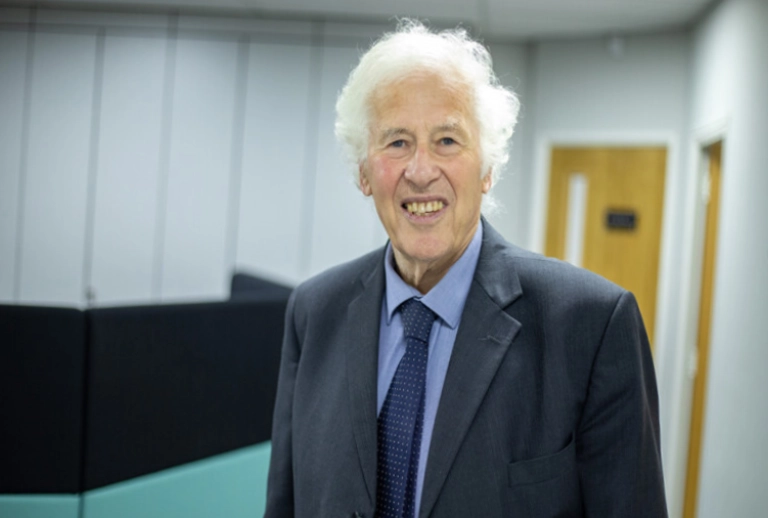The theme of this year’s World Alzheimer’s Month theme is “#AskAboutDementia”, which encourages people to speak up, ask questions, listen, and learn to increase understanding and reduce the stigma surrounding the condition.
In recognition of this, Michael Neal-Brook, senior associate in Lodders’ Care & Capacity team, explores legal considerations after a dementia diagnosis.
It’s never easy when a loved one receives a diagnosis of Alzheimer’s or dementia. It can be a very overwhelming time, both emotionally and practically. As you begin to process what this means for your family, it’s also important to consider the legal steps that can help protect their wishes, rights, and wellbeing in the future.
Understanding legal capacity
Contrary to common belief, a diagnosis of dementia does not automatically mean that a person is unable to make a will or Lasting Powers of Attorney (LPAs). The key factor is whether they have the mental capacity to understand and make decisions specifically about the content of the will or LPAs.
Many people in the early stages of dementia retain legal capacity – the ability to understand, evaluate, and make informed decisions – particularly when provided with the right support. However, capacity can fluctuate day to day and may decline over time. That’s why early planning is so important.
Acting early gives the person the opportunity to clearly express their wishes and ensures that important legal documents, such as wills and LPAs, are valid and less likely to be challenged in the future.
Step 1: Create a Lasting Power of Attorney (LPA)
People often wrongly assume their next of kin can make financial, medical and care decisions if they are no longer able to, but this is not the case if you have not arranged an LPA.
An LPA is a legal document that allows your loved one to appoint someone they trust – often a family member or close friend – to make decisions on their behalf if they lose mental capacity in the future.
There are two types of LPAs:
- Health & Welfare LPA – covers decisions about medical treatment, care, and living arrangements.
- Property & Financial Affairs LPA – covers bank accounts, bills, property, and investments.
If your loved one loses capacity without an LPA in place, you’ll need to apply to the Court of Protection to become a deputy. This is more complex, time-consuming, and expensive process.
The earlier an LPA is set up, the better. Read more about arranging an LPA here.
Step 2: Establish advance statements and decisions
Advance statements and decisions are part of advance care planning after a dementia diagnosis. They help ensure that an individual’s wishes regarding future health and social care are known and respected if they later become unable to make decisions for themselves. They provide guidance for both family members and healthcare professionals, offering clarity during what can be a difficult and emotional time.
One aspect of advance care planning is an advance statement. This is a written document in which a person records their preferences, wishes, values, and beliefs about the care they would like to receive in the future. Although not legally binding, an advance statement should be considered by those involved in the person’s care, including any appointed attorneys, carers, and the healthcare team. Individuals can write the statement themselves, with support from family members or health and social care professionals if needed.
Another important legal document is an advance decision to refuse treatment (often called an ADRT or sometimes referred to as a “living will”). This allows a person to refuse specific medical treatments in the future, including treatments that could potentially prolong life (known as life-sustaining treatments).
It is strongly recommended that any advance decision is first discussed with a doctor or healthcare professional to ensure a full understanding of the implications and consequences of refusing certain treatments. It is also important to ensure that an advance decision does not conflict with an LPA and so professional advice is highly recommended.
Step 3: Make or update the will
A person living with dementia may still have the necessary “testamentary capacity” – the legal understanding to create or update their will.
To make a valid will, the person must:
- Understand the purpose of the will,
- Know what assets they own,
- Recognise who might reasonably expect to inherit,
- Not be under undue influence or pressure.
A solicitor can assess their capacity and take detailed notes to reduce the risk of the will being challenged later down the line. For more information about making a will with dementia, read our blog here.
Step 4: Continue to review and update the documents
Even once the key documents are in place, it’s important to review the will and LPAs if circumstances change, keep clear records of any discussions or decisions, and ensure appointed attorneys and family members know what documents exist and where to find them.
Handling the legal side of a dementia diagnosis may feel daunting, but taking proactive steps early on can protect your loved one’s autonomy and make the years ahead a little bit easier.
Legal advice following a dementia diagnosis
At Lodders, our experienced Care and Capacity team helps families navigate these sensitive issues with empathy, clarity, and expert legal guidance. If you’re unsure where to start, get in touch with the team today for a confidential conversation.
Contact usContact us
Need more advice?
For help with a legal problem or more information on any of our services at Lodders, please get in touch with our friendly team. You can contact us via the number or email address below, or fill in the form and we will get back to you as quickly as we can.

Contact a member of the team
Read more
Other news, insights and events







